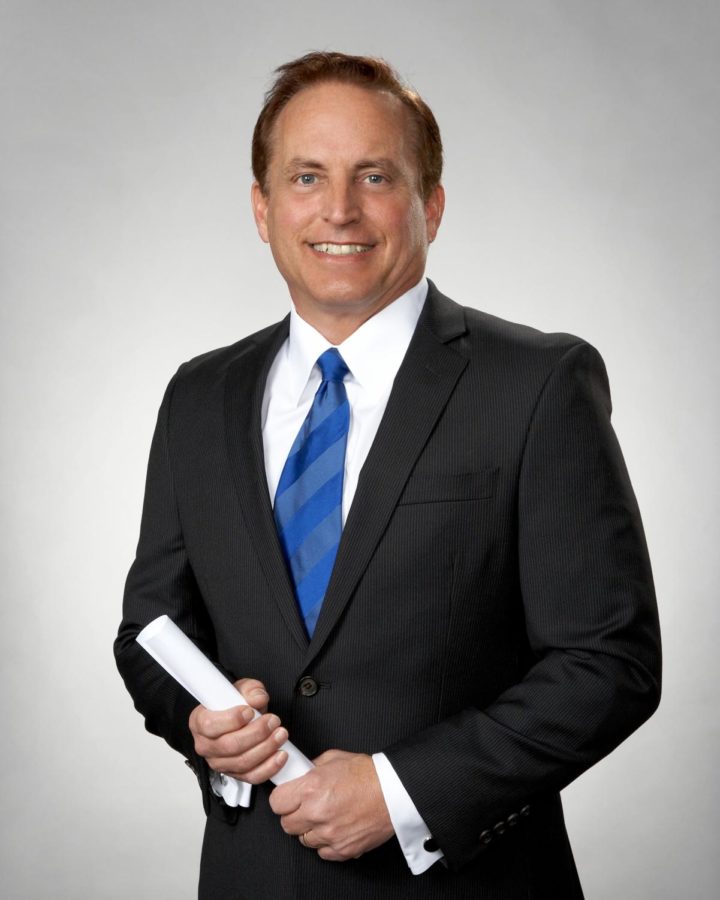Meet the candidate: Secretary of State Paul Pate runs for re-election
October 10, 2018
Paul Pate is running for a third term as secretary of state, using his past accomplishments as the basis for his reelection campaign.
Pate served as an Iowa senator for the 24th and 26th districts, a term as secretary of state under Governor Terry Branstad and mayor of Cedar Rapids. In 2014 — 20 years after first being elected to the position — Pate returned as Iowa secretary of state under Gov. Terry Branstad with many ideas on how to enhance the lives of Iowans.
Most recently, Pate pushed for voter ID laws in Iowa while also starting initiatives to register more eligible voters. While voter ID has been a contested issue in the state, Pate said it isn’t as controversial as some make it out to be.
“It isn’t about rampant fraud going on; it’s actually about protecting what you value,” Pate said in a debate with his opponent, Deidre Dejear, on Iowa Public Television (IPTV). “When you left your home, you locked your door at your house. You didn’t lock your home because there are a rash of burglaries in your neighborhood, but because you value the things inside your home, and voting is one of those things that we value.”
Pate supported this in the debate, and on his website, by citing a poll from the Des Moines Register which said a majority — nearly 70 percent — of Iowans support voter ID laws.
Pate said the law serves to keep voter integrity rather than disfranchise people as it has been in effect for more than 40 special elections since it was passed by the Iowa Legislature. Calling it a soft-rollout, Pate said no one was disenfranchised in the process even though they asked for an ID.
Much of the voter ID law is not currently in effect due to pending lawsuits and litigation in Iowa courts.
As a result, voters in Iowa will and have been asked to show a voter ID before they vote, but they won’t be legally required to do so as long as they sign an oath saying they are the same person they are claiming to be.
Dejear voiced her concerns with voter ID laws during the discussion on IPTV.
“We need each and every eligible voter in our state to be given an adequate invitation to vote,” Dejear said. “Last primary election only 13 percent of registered voters voted in the primary. Iowa is better than 13 percent.”
Other changes can be expected to Iowa’s voting have gone into effect. In previous elections, voters had 40 days to do early and absentee voting but that period has now been reduced to 29 days before the election.
These policies are part of Pate’s promises to “make it easy to vote, but hard to cheat” according to his campaign website.
Some of his “easy to vote” goals led to his implementation of online voter registration in 2015, and within five months of the programs launch, over 10,000 new voters had registered.
Online registration has helped over 250,000 Iowans register to vote since 2015. Iowa is currently at an all time high for active registered voters with more than 2 million individuals registered leading Iowa to currently rank 6th nationally for voter registration, according to Pate’s website.
Pate’s policies also made voting more accessible to Iowans serving in the military overseas.
“It’s important that those defending our freedoms overseas are easily able to cast their ballots back home, and we were able to extend the time to request special submarine absentee ballots to 120 days,” Pate said during his reelection announcement. “They have our back over there, so we need to make sure we’ve got their back when it comes to voting.”
The Safe at Home program was one of Pate’s first initiatives after being elected. This program aims to protect victims of domestic violence, sexual assault, trafficking and stalking by keeping their address confidential.
The program is designed to allow Iowans to take preventive action steps if they feel at risk and passed unanimously in the Iowa senate in 2015.
“Now, hundreds of Iowans are safer and able to lead a more normal life thanks to this program,” Pate said, when he announced his reelection bid. “Many have been able to vote for the first time in several years.”
Pate expressed gratitude to his colleges and hopes to help the organization “conduct clean and fair elections, and to offer service at the speed of business, not the speed of government.”
If he is elected to serve another term, Pate said he hopes to continue to educate Iowans on Voter ID laws and pass legislation to make voting more accessible and fair in Iowa.







